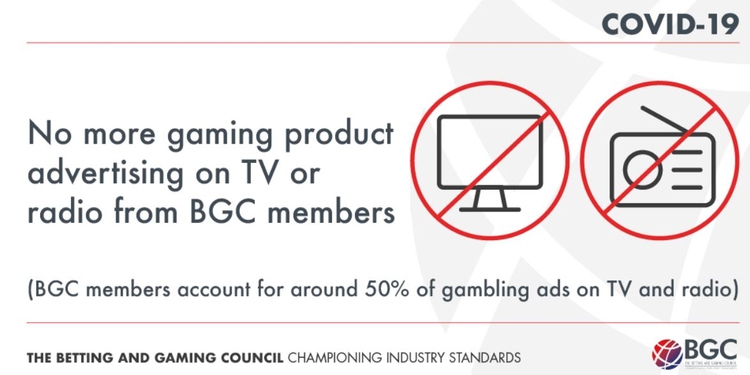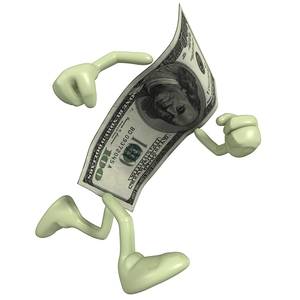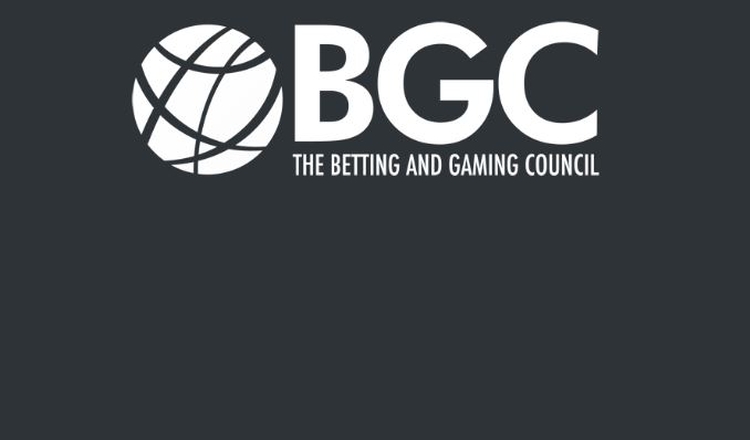With the country still in the grips of the COVID-19 pandemic, more people than ever before are stuck at home with not a lot to do.
It has been rightly pointed out that this could present an issue when it comes to boredom gambling and those with pre-existing gambling problems.
I have to say, on the whole the response of the gambling industry so far has been commendable. Bet365 have pledged to keep all jobs safe until August at the very earliest, while William Hill’s CEO has donated his salary to furloughed staff members.
The latest act of social responsibility comes as the Betting and Gaming Council (BGC) – the industry association for betting shops, online gaming businesses, and casinos – announced that all firms have agreed to voluntarily withdraw advertising for a minimum of 6 weeks.
The Advertising Agreement

The decision comes after it was suggested that the industry was exploiting people who were stuck at home, and the BGC seem proud of what their members have agreed to do:
“We are determined to do everything we can to protect customers potentially at risk during this lockdown period and beyond. I hope now that other major gambling operators like the National Lottery follow our lead”
These were the words of Betting and Gaming Council chief executive, Michael Dugher.
The agreement, which starts on May 7th at the latest, covers all above the line marketing and represents a complete blackout on TV and radio advertisements.
These advertising slots will instead be replaced with responsible gambling messages, donated to charities so that they can use the paid for slots to advertise themselves, or simply removed if the contract allows this.
Online Adverts Unaffected
 While this news was welcomed by all, for some it is still not enough.
While this news was welcomed by all, for some it is still not enough.
Henrietta Bowden-Jones, director of the Central and North West London NHS Trust’s national problem gambling clinic and national centre for gaming disorders, thinks that online adverts should have been included in the advertising blackout.
“The end of gambling advertising on TV and radio during lockdown is an acknowledgement that these adverts are potentially harmful to many. The most important ban would have been of online ads. Sadly this has not been included and many are wondering why?”
But Mr. Dugher was keen to point out that the marketing ban isn’t all that the BGC have been doing:
“From day one of this crisis, we have sought to protect customers potentially at risk, including announcing stepping up safer gambling measures as part of our 10 pledges for Covid-19 in March.”
As usual, it seems as though everyone can agree that steps have been made in the right direction, but not on how many of those steps have been taken.
Fast Tracked Support Funds
 Whatever your opinion on the marketing ban, one thing that can’t be denied is that lockdown presents a risk when it comes to gambling related harm, as evidenced by the UKGC’s fast tracking of £9million to gambling charity, Gambleaware.
Whatever your opinion on the marketing ban, one thing that can’t be denied is that lockdown presents a risk when it comes to gambling related harm, as evidenced by the UKGC’s fast tracking of £9million to gambling charity, Gambleaware.
This is money taken from regulatory settlements, or fines to you and me, from gambling companies who have been found in breach of their licensing terms.
This acceleration has happened precisely because of the lockdown, as William Moyes, Chairman of the Gambling Commission, confirms:
“In the current climate, and with the potential risks to British consumers in mind, we have fast-tracked this settlement-driven funding to GambleAware so their work to prevent gambling harms and award grants can continue seamlessly.
Interestingly though, the UKGC has said that gambling participation has fallen during the lockdown period; although given that this coincides with the cancellation of almost all sporting events this statistic could be misleading.

